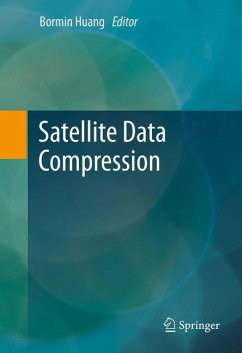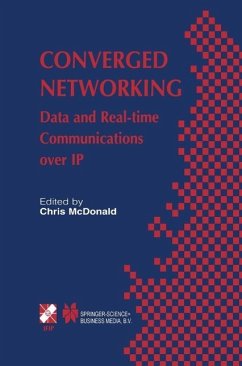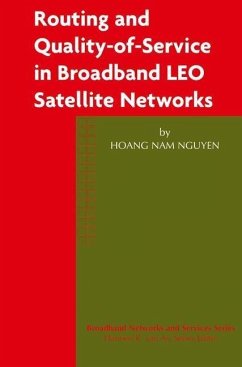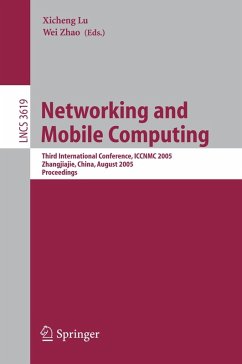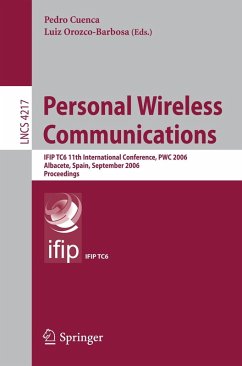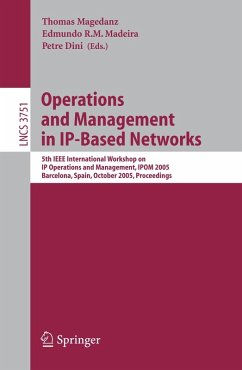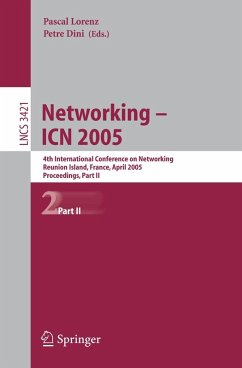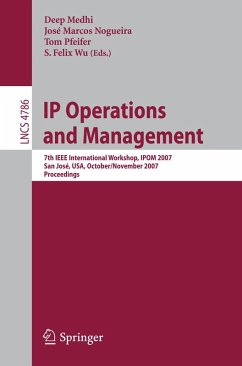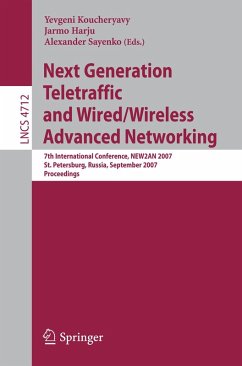
IP Networking over Next-Generation Satellite Systems (eBook, PDF)
International Workshop, Budapest, July 2007
Redaktion: Fan, Linghang; Sun, Zhili; Cruickshank, Haitham
Versandkostenfrei!
Sofort per Download lieferbar
160,95 €
inkl. MwSt.
Weitere Ausgaben:

PAYBACK Punkte
80 °P sammeln!
With the boom of Internet, IP-based applications, such as WWW and multimedia, have been an essential part of our life, and there is an ever-increasing demand for accessing high-speed Internet services anywhere and anytime. This trend unavo- ably has huge impact on the design of the next-generation satellite systems. In addition, with its broadcasting nature and global coverage, satellite systems also can play an important role in the next-generation Internet. For example, satellite systems can be a good driver for the deployment of IPv6 in the Internet and can provide a fast way to reach end-u...
With the boom of Internet, IP-based applications, such as WWW and multimedia, have been an essential part of our life, and there is an ever-increasing demand for accessing high-speed Internet services anywhere and anytime. This trend unavo- ably has huge impact on the design of the next-generation satellite systems. In addition, with its broadcasting nature and global coverage, satellite systems also can play an important role in the next-generation Internet. For example, satellite systems can be a good driver for the deployment of IPv6 in the Internet and can provide a fast way to reach end-users because they do not rely on construction of a high-speed terrestrial networks. Thus satellites have the potential to bridge signi- cant gaps in global connectivity issues. To the naïve observer IP over satellite problem has been solved in the past and does not have any new challenges. However, recent satellite research in several EU projects show that there are still many unresolved issues; such as efficient depl- ment of IPv6 over satellites, interworking with other access technologies such as WLAN and WiMax, QoS provisioning over multi-segment networks (including satellites), security and On-Board Processing satellites usage for challenging applications such as IP multicast over satellites. The papers in this book were selected from the 'International Workshop on IP Networking over Next-generation Satellite Systems (INNSS'07)', which was held on July 5, 2007 in Budapest, Hungary as a part of the 16th IST Mobile and Wireless Communications Summit conference.
Dieser Download kann aus rechtlichen Gründen nur mit Rechnungsadresse in A, B, BG, CY, CZ, D, DK, EW, E, FIN, F, GR, HR, H, IRL, I, LT, L, LR, M, NL, PL, P, R, S, SLO, SK ausgeliefert werden.



